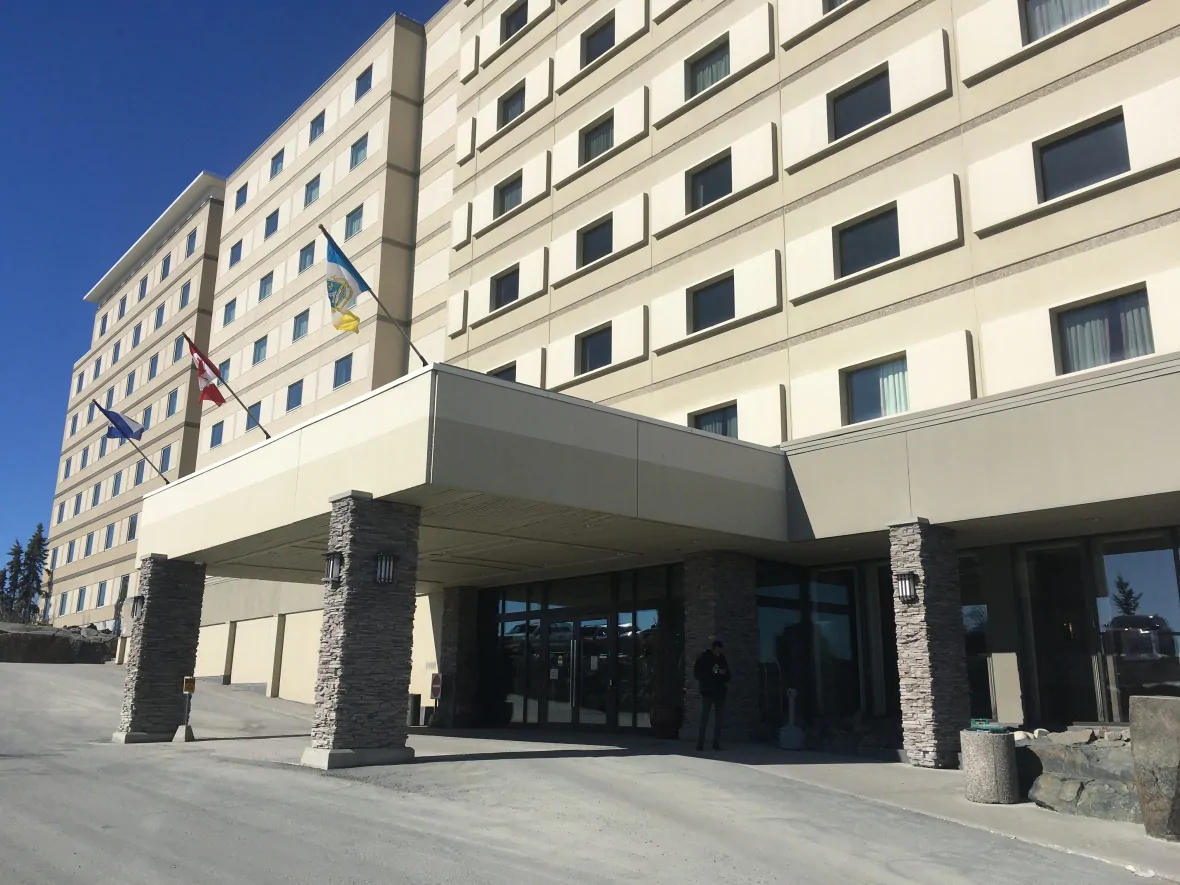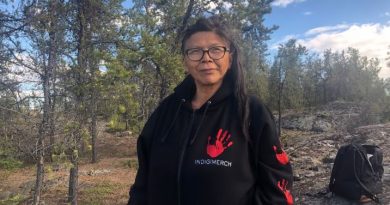Hotels in northern Canada laid off dozens as COVID-19 shutdown squashed business overnight

Dozens of hotel and restaurant workers in the N.W.T. and Nunavut have been unemployed for weeks.
The Explorer Hotel in Yellowknife laid off 70 people in March. Its sister hotel in Iqaluit, the Frobisher Inn, laid off 75 people at the same time.
In each location, some former workers are lingering in staff accommodations waiting to see whether they’ll get put back to work. That includes 46 people in Iqaluit and 20 in Yellowknife.
“We’re providing their room and some of their board,” said Ed Romanowski, president and chief operating officer of Nunastar Properties, which owns both hotels. “How long that will last, now that it’s been nine weeks since this happened, we have to determine.”
In each hotel, only 14 people are still working, either cooking for staff and takeout customers or looking after the few guests who remain. The Explorer housed several Nunavut travellers self-isolating before returning to the territory, but the bulk of that business has now ended. Romanowski estimates business is about 10 per cent of what it used to be.
He’s hoping that will change. In Yellowknife, that means offering more takeout, low rates for “staycations” and creative solutions like top-floor in-suite dinner experiences “overlooking the city in the evening so you can enjoy the view as a couple.” In Iqaluit, they’re hoping to see some construction workers, government travelers and people traveling for medical care.
Most hotels, Romanowski says, break even in the 50 to 65 per cent occupancy range. But he’d settle for much less.
“Who would have thunk just a short while ago that we would have been ecstatic to bring our business up from 10 per cent occupancy to 20 or 25 per cent occupancy?”
In the meantime, the company is offering online courses to staff who are standing by to see if their jobs come back. That includes anything from learning to use Excel to studying the art of banqueting. “Almost every aspect of the business,” Romanowski says.

Pelican Rapids Inn laid off 25
Dana Ferguson is co-owner of the Pelican Rapids Inn in Fort Smith, N.W.T.
In March, she laid off her entire hotel staff of 10 — seven full-time and three part-time workers — as well as all 15 people who worked at Dirty O’Fergies Bar & Grill.
“Now it’s just me, my husband and my [eldest] son,” she said.
Revenue plummeted quickly. Last March, her business made about $80,000 in gross sales. This year, it was $7,000. Usually at this time of year, about 33 of her 42 hotel rooms are full. On Monday, guests occupied three.
“You’re not even itching the scratch,” Ferguson said.
She’s thankful for funds from CanNor that helped cover some fixed expenses in April and May. But she’s not sure what comes next.
“It’s crazy. Unseen. Unheard of. I don’t know what to do,” she said.
“Myself, personally, I’ve applied for jobs at the town. If there’s no hotel business … we’ll have to think about shutting down portions of the building.”
“I told my husband, maybe we’re gonna be mowing lawns and shoveling driveways. Who knows?”
51 laid off in Hay River
Terry Rowe is the general manager of the Ptarmigan Inn in Hay River, N.W.T.
“We went from about 60 staff to nine,” he said, “and we’re at about 12 or 13 now with the wage subsidies that we’ve been able to get a hold of.”
In addition to staff at the 42-room hotel, the numbers include people who worked at the Doghouse Pub, the Keys restaurant, the Back Eddy Lounge and Grill and the Fitness for All Gym, all of which are owned by the Rowe Group of Companies.
Rowe was able to bring back some kitchen and housekeeping staff for a few days during the flood evacuation. He bought a delivery van and has started doing takeout. He’s also had some business providing meals to people self-isolating after medical travel, even if they aren’t staying in his hotel.
“But definitely, a minimum of 70 per cent of our revenue’s been lost,” he said.
Rowe sees Phase II of the territory’s reopening plan, which includes in-person dining, as a light at the end of the tunnel. He’s working on risk assessments and getting supervisors prepared.
But even that won’t bring things back to normal.
“I’m sure that’ll probably be around 50 per cent capacity,” he said. “And it’s not like when we open the doors people are going to rush in.”
Related stories from around the North:
Arctic: Roundup of COVID-19 responses around the Arctic, Eye on the Arctic
Canada: ‘We weren’t prepared’: Canada’s Northwest Territories economy in a battle for survival amid COVID-19, CBC News
Finland: Half of Finnish Lapland’s tourism businesses fear failure by winter, Yle News
Greenland/Denmark: COVID-19 could delay Kingdom of Denmark’s Arctic strategy, Eye on the Arctic
Iceland: Iceland talks COVID-19 with Canada, Greenland foreign ministers, Eye on the Arctic
Norway: Norwegian Arctic wilderness tourism hit particularly hard by coronavirus, The Independent Barents Observer
Russia: Almost 2,000 workers have contracted COVID-19 at this Russian Arctic construction site, The Independent Barents Observer
Sweden: Nordics concerned over COVID-19 spread in Sweden, Radio Sweden
United States: Alaska’s largest rural airline, Ravn, files plan to liquidate as bankruptcy proceeds, Alaska Public Media



